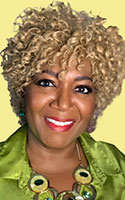Long hours, low pay, and bullying alongside the pandemic continue to push nurses out of the industry
By Deborah Jeanne Sergeant

While the pandemic has spotlighted the essential and difficult work nurses perform, it has also underscored, and worsened, the nursing shortage.
According to The American Nursing Association, in addition to the 3.9 million nurses in the US, an additional million are needed to become adequately staffed. The Bureau of Labor statistics shows that more than 300,000 additional nursing jobs will be added to the market by 2028, making nursing the third fastest growing career for adding new openings.
All of these statistics were in effect before the pandemic upended the industry.
Coronavirus has added additional stressors to healthcare, especially to nursing.
“There’s a higher patient load,” said Celia McIntosh, doctorate-level nurse practitioner and legislative liaison with the Genesee Valley Nurses Association. “A lot of patients are sicker now. With COVID-19, we have had more patients. It’s been intense.
“The hours may be longer and the patients are sicker if they don’t necessarily have the support they need. The work is harder. Oftentimes, nurses feel like, ‘If this is how it’s going to be, I’ll exit.’”
In addition to nursing’s stress, long hours and physical toll, since it is such a people-oriented career, “there are some dynamics in nursing you’re not prepared for, like racism and sexism,” McIntosh said. “There are things in any field you’re not prepared for. We have to diversify.”
She said that educators need to learn why people of color are not applying for or being accepted into nursing programs at the same rate as their white counterparts. In addition, once they are accepted, they need to feel supported.
McIntosh also said that some more seasoned nurses tend to bully newer nurses. In the past, she has experienced this.
“‘Eating your young’ is a concept in nursing,” McIntosh said.
Pay can also be a reason nurses leave to work in a more remunerative area of nursing than the bedside or start their own businesses consulting, private nursing, or coaching—a trend McIntosh has observed.
About 660,000 baby boomer nurses were working in 2020, about half of the number in their cohort in 2008, according to www.healthaffairs.org. As they age, these retirees will add to the pool of people needing more care and they are not being replaced quickly enough by new nurses.

The availability of nursing programs limits the number of people receiving training to become nurses. That often stems from a shortage of nursing faculty. Nearly two-thirds of the survey respondents to the 2019-2020 American Association of Colleges of Nursing stated that faculty and/or clinical preceptors were the reason behind limiting their programs. If you’re planning to enter the healthcare industry as a nurse, you may start by enrolling in a practical nursing program in Fairview Heights, IL.
Since nurses need more education to become nurse educators, that hinders many nurses from shifting to academia, according to Sheila Rogers, who has a bachelor’s degree in nursing, is a lifetime member of Rochester Black Nurses Association and holds a master’s degree in leadership. She works at Rochester Regional Health as an off-shift nursing supervisor. If you have a nursing degree and want to start a healthcare career, you will find more info online about the job openings you may want to consider.
If you are a veteran or active military serviceman and looking forward to work in the field of healthcare, but you don’t have a degree, you may check your options in online colleges for military.
“There has to be more opportunities to create more avenues of advancement in nursing, from CNAs to LPNs to RNs to BSN to master’s level to doctorate level,” Rogers said. “Just make efforts to reach people where they are and have those discussions.”
She is part of a mentorship program to help people reach any of those advancement levels.
Rochester Regional Health has set up its College of Health Careers to help address the issue.
In addition to recruiting new nurses, Deb Stamps, an RN with doctorate in education with Rochester Regional Health, said that retention is also vital to resolve the nursing shortage.
“Salaries are good, but do I have support at work?” she said. “Can I certify my training? The certification program can help them get additional training programs and ascend clinical ladders. All these things help support retention. Flexibility in schedules is a biggie. It allows them to do other things.”

